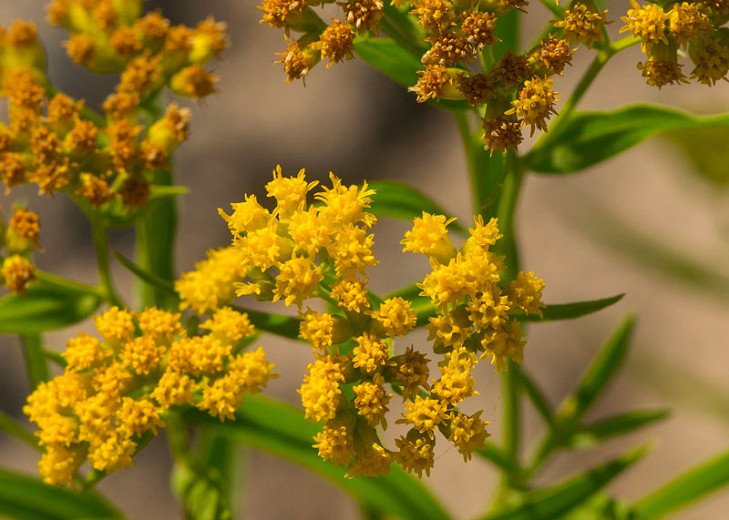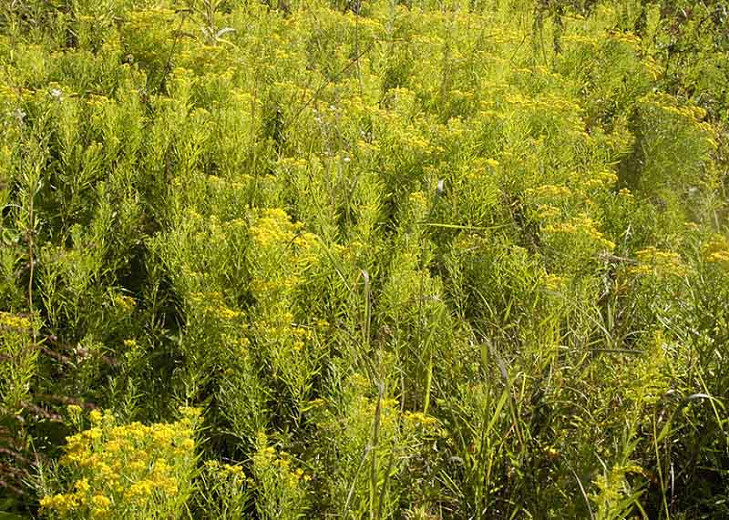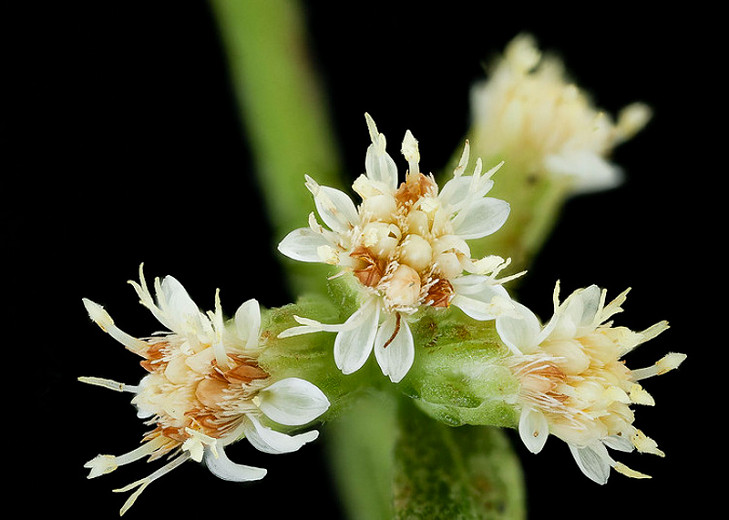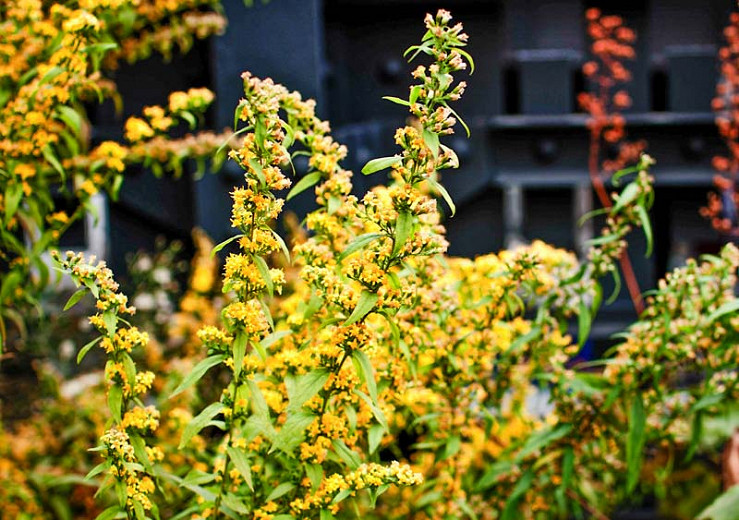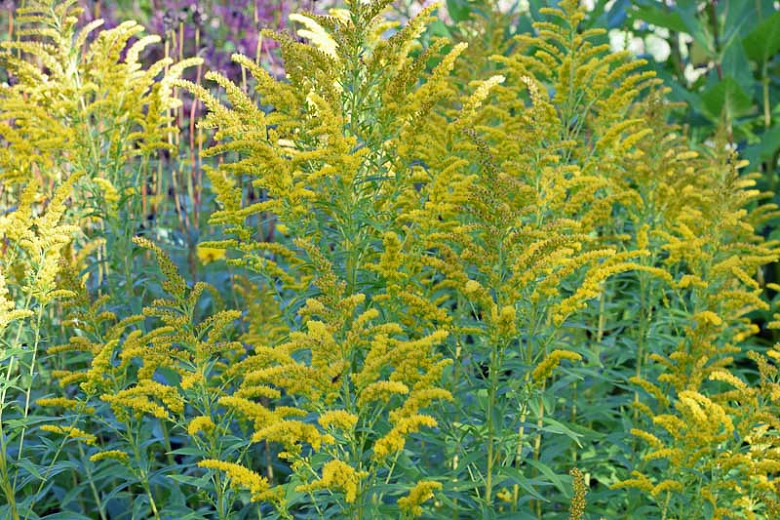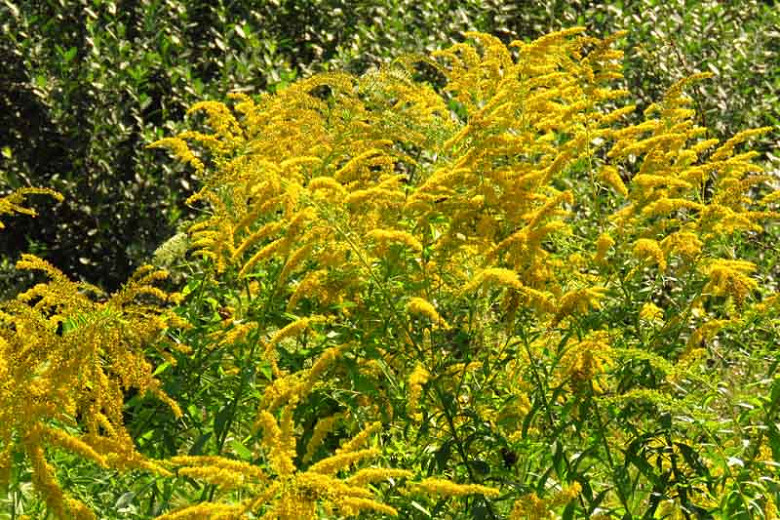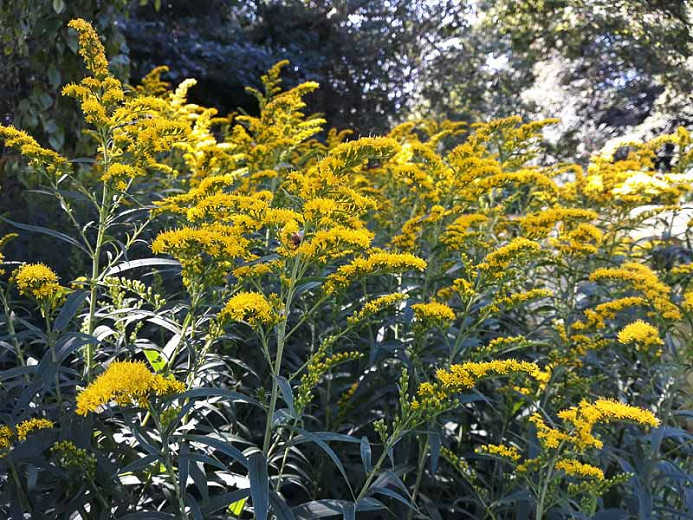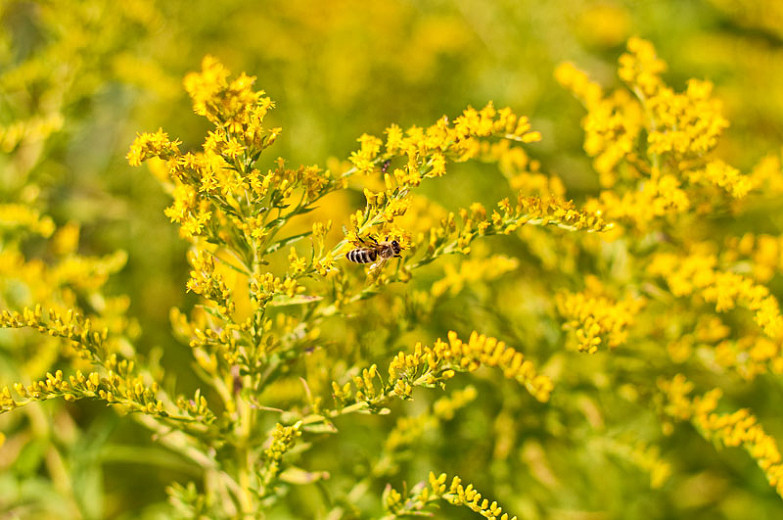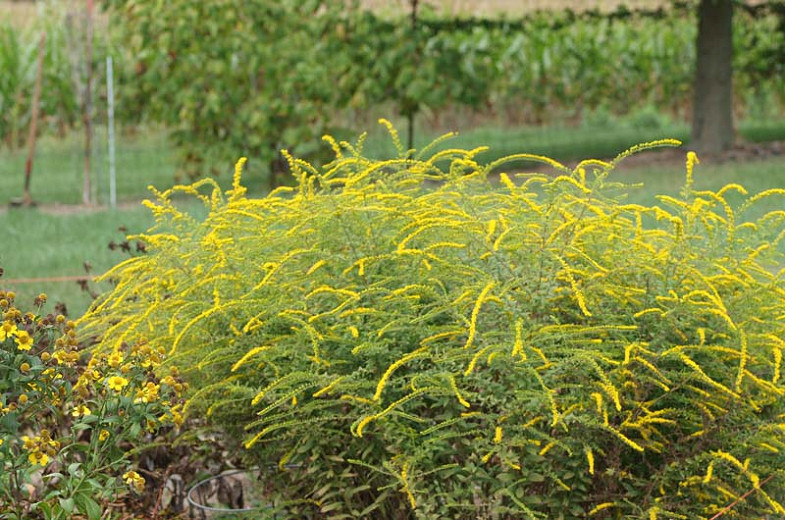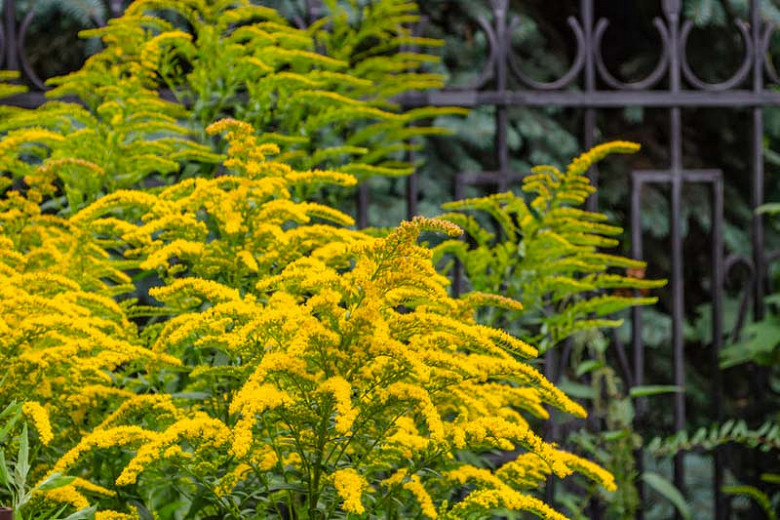Euthamia graminifolia (Grass-Leaved Goldenrod)
Euthamia graminifolia (Grass-Leaved Goldenrod) is an upright, erect perennial wildflower with many-branched inflorescences atop leafy branched stems. Blooming from mid-summer to fall, they bear dense, flat-topped clusters of 20-35 pale to bright yellow flowers. The upper half of the plant appears bushy due to its branched stems and grass-like, narrow to linear, alternate leaves. The leaves emit a scent when crushed. Grass-Leaved Goldenrod provides a nectar source for pollinators, including long-tongued bees, short-tongued bees, wasps, flies, butterflies, moths, and beetles. Its dried seeds provide a food source for songbirds. Deer and rabbits enjoy browsing the plant. Adding a bold splash of color in the late-season landscape, Grass-Leaved Goldenrod is a vigorous rhizomatous perennial that spreads aggressively to form colonies. Found in moist meadows, prairies, roadsides, conifer swamps, or sandy moist shorelines through most of North America, Grass-Leaved Goldenrod is a good choice for erosion control, wildlife gardens, or meadows.
- Grows up to 3-6 ft. tall (90-180 cm) and 1-2 ft. wide (30-60 cm).
- Performs best in full sun in moist, well-drained soils. Tolerant of poor, gravelly, sandy, or dry soils and once established, can tolerate droughty conditions. It can grow in strongly acidic to mildly alkaline conditions.
- A beautiful plant for coastal gardens, butterfly gardens, and pollinator gardens.
- No serious pest or disease issues.
- Euthamia graminifolia is considered invasive in Europe.
- Propagate by seed or by division, while the plant is dormant. Seed germination may be improved with cold-moist stratification.
- Native to most of North America.
Requirements
| Hardiness | 3 – 9 |
|---|---|
| Plant Type | Perennials |
| Plant Family | Solidago – Goldenrods |
| Exposure | Full Sun |
| Season of Interest | Summer (Mid,Late)Fall |
| Height | 3' – 6' (90cm – 180cm) |
| Spread | 1' – 2' (30cm – 60cm) |
| Spacing | 24″ (60cm) |
| Water Needs | Low, Average |
| Maintenance | Low |
| Soil Type | Loam, Sand |
| Soil pH | Acid, Alkaline, Neutral |
| Soil Drainage | Moist but Well-Drained |
| Characteristics | Showy |
| Native Plants | United States, Midwest, Illinois, Indiana, Iowa, Michigan, Minnesota, Missouri, North Dakota, Ohio, South Dakota, Wisconsin, Northeast, Connecticut, Delaware, Maine, Massachusetts, Maryland, New Hampshire, New Jersey, New York, Pennsylvania, Rhode Island, Vermont, Pacific Northwest, Washington, Rocky Mountains, Colorado, Montana, Wyoming, Southeast, Alabama, Florida, Kentucky, Louisiana, Mississippi, North Carolina, South Carolina, Tennessee, Virginia, West Virginia, Southwest, New Mexico |
| Tolerance | Drought, Dry Soil |
| Attracts | Bees, Birds, Butterflies |
| Garden Styles | Coastal Garden, Prairie and Meadow |
